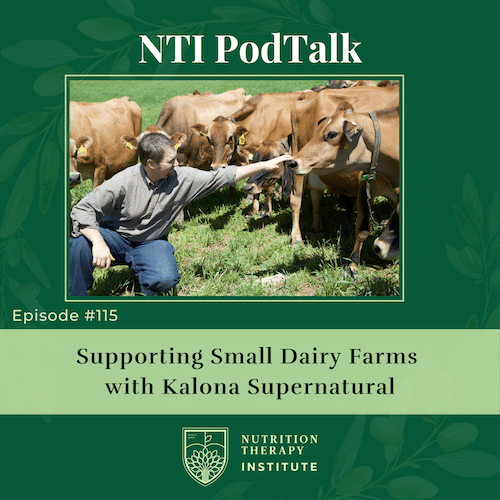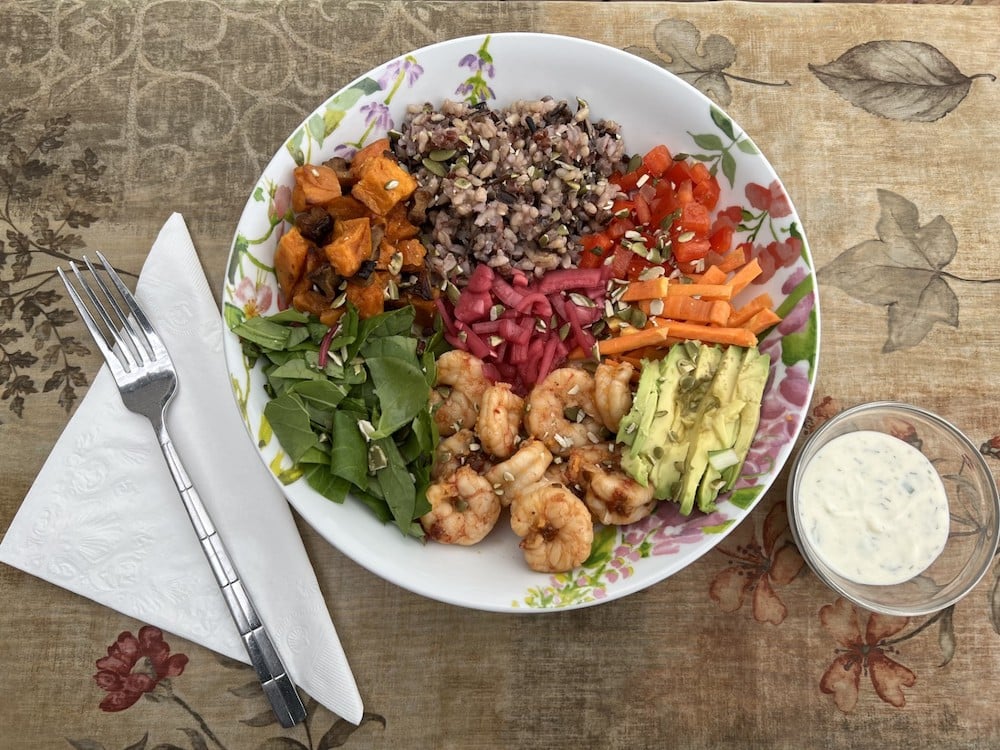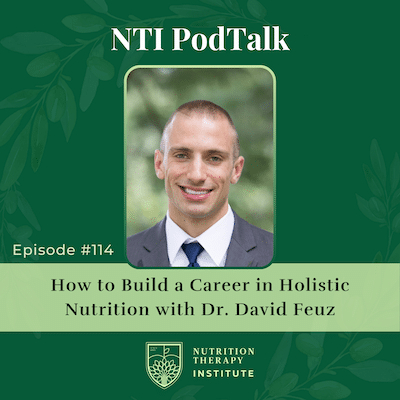
Share this post!
Anne Baker is an NTI graduate currently practicing in Michigan. She is the author of a gluten-free cookbook called Season it Well. Anne was also very active in reversing a Dietetics Licensure Law, which would have allowed only Registered Dietitians to give nutritional advice in Michigan. As a result, she became one of the founding board members of the Michigan Nutrition Association. Below is our interview with Anne.
What made you decide to study nutrition?
Growing up in the 1960’s, natural health was becoming more popular. By the time the 1970’s rolled around and I was a teenager, I had amassed quite a number of books on herbs, natural cooking and organic gardening. In those days my teachers were Jethro Kloss, Louise Tenny and Phillis Balch. I still have some materials I ordered from the Hippocrates Health Institute. I am probably one of the few people in America that has never eaten a McDonalds or Burger King hamburger!
The decision to turn my passion for healthy living into a career did not come until much later, in my mid-forties. I was in the midst of a successful career as a consultant when my health began to unravel. My migraine headaches had become more frequent and debilitating and my back and joint pain was making it harder and harder for me to move. I was in so much pain I thought I’d be in a wheel chair by the time I was fifty. Over the course of just a few months I found I had chronic fatigue and precancerous cells on my cervix. Although I felt miserable, prescription medications were not for me. I knew to truly heal myself I’d need to turn to alternative medicine, as it was called at the time. After seeking out many alternative and natural health providers I realized I was just getting a piece of the puzzle to my own health issues. That’s when I decided I had to find my own answers and enrolled in NTI.
Tell us a little bit about your nutrition practice and areas of focus.
I work with people who suffer from what I call the “tri-fecta of modern living”; chronic pain, low energy and poor sleep. Many of my clients have been diagnosed with an autoimmune condition, but often people I see suffer from some mystery illness that presents itself very much like an undiagnosed AI [autoimmune] condition. What I have found is that almost all the people who come to me for help have underlying digestive, immune and detoxification pathway issues. Most often these people are unknowingly eating foods that impair proper digestion and elimination, and make their pain worse. Using special diets along with lifestyle change, I am able to help clients avoid prescription medications and reclaim their good health. I recently obtained training in BioIndividual Nutrition by Julie Matthews, founder and author of Nourishing Hope for Autism. Many of the principals discovered as a result of the ASD body of research apply to other chronic conditions. I have been applying this learning in my practice.
You were a founding board member for the Michigan Nutrition Association. What made you decide to take on such a big project?
Because I was planning on using my NTI credentials to open my own nutrition counseling business, I thought it prudent to check my state laws. That was in 2007. I found that the Michigan Dietetics Association had gotten a law passed (but not enacted) that would have discriminated against anyone who had training other than an RD and would have given the MDA a monopoly. The law would have made it illegal for anyone (including me) who was not a Registered Dietitian to speak to the public about nutrition, and would have taken away the public’s right to choose whom they wished to work with for nutritional counseling.
At the time, I was just beginning to establish a new professional network in the health care industry. One of the supplement companies’ representatives introduced me to one of the licensure and credential board members. She suggested I start attending the meetings in the State Capitol, which I did for the next six years. There I met others, like me, who wanted to ensure the public had a right to choose whom they wanted to see for nutritional counseling, and protect our right to use our nutrition credentials to counsel on nutrition. There was a small core group of us who quickly realized we needed to get organized if we were to protect our freedom to choose, and our livelihood. The idea for MNA was born and I was asked to be on the board. I am very proud of our grassroots efforts and the fact that on July 1, 2014, Michigan made history by signing into law HB 4688 to REPEAL the Dietetics Licensure Law, which monopolized the field of dietetics and nutrition for members of one trade association, the Academy of Nutrition & Dietetics, formerly the American Dietetic Association. Both the House and the Senate voted with 2/3 approval.
Now the public can select the nutrition practitioner of their choice, and nutrition practitioners can maintain their practices without worrying about investigations or prosecutions. Repeal of this restrictive law supports a competitive marketplace and promotes increased business opportunities for Michigan! Although the Michigan Academy of Nutrition & Dietetics claimed the public would be vulnerable to many dangerous practices without licensure, they were NEVER able to provide any evidence of risk to the legislature.
I know that you are very good about keeping up on the latest research in nutrition. What areas of research are you currently most drawn to, and why?
One of the topics I lecture on is Autoimmune Disease. Consider that genetic variants contribute to only 9% of why one person gets an autoimmune condition and another doesn’t. This is incredibly powerful when you realize that what this means- the other 91% is potentially within our control!
I have become very interested in the use of special diets for helping people with autoimmune and autoimmune-like symptoms. I read an article in the Townsend Letter several years ago showing that people with IBS/IBS ; Crohns and colitis were able to significantly reduce their symptoms by altering their diets by eliminating specific types of foods. I knew about SCD [Specific Carbohydrate Diet] and GAPS [Gut and Psychology Syndrome Diet]being used in the ASD [Autism Spectrum Disorder] community, but didn’t realize these diets might prove effective for some of my IBS/IBD, Crohns and colitis clients. When I began using these diets my clients saw amazing improvements in their health. This led me to investigate other classifications of foods and diets removing oxalates, glutamates, amines, salicylates, phenols, and FODMAPS. Last fall I was in the first group of students taking courses in BioIndividual Nutrition from Julie Matthews where my understanding of how to use these diets has deepened.
Another area I have become fascinated with is neurological health. I am drawn to the work of Dr. Datis Kharrazian DHS, DC, MS, Dr. David Perlmutter MD, and Mike Mutzel, MSC. Specifically the role of gluten, carbohydrates, fats, combined with epigenetics and environmental toxins. My hope is that what’s being discovered now may help us learn more about how these factors trigger the development of dementia and Alzheimer’s disease.
I am also continuing to explore the use and interpretation of specialized testing, herbal therapeutics, and targeted nutrients as a way to further hone my abilities to help the clients I serve.
Tell us about your cookbook.
The reason I decided to self-publish my recipes was because people kept asking me for recipes! I never realized how many recipes I was creating until I made the decision to actually write them down and photograph them. In fact, when I showed the first draft of my table of contents to my husband he said I had enough for at least two books!
From a business standpoint I wanted to create a beginners guide to gluten free cooking for people who felt gluten free food was tasteless and boring. Hence the title Season it Well! the Outrageously Delicious Gluten Free Recipe Collection for the Discerning Palate. The recipes I selected were fairly easy to prepare, with easy to find ingredients. And because I also wanted to make it more appetizing for people to eat healthier, I included lots of vegetables, healthy fats, herbs and spices.
Self-publishing was NOT as simple as people make it out to be. There are completely different formats you must follow in e-publishing and print publishing. If you don’t follow these exactly Amazon and the other big companies won’t accept your book.
Then there is the actual process of photographing the food. I decided that each recipe should have an image which meant cooking every recipe and photographing it – myself! I gave myself a deadline of before Christmas. This meant I was cooking between three to four recipes a day and photographing them!
I do plan on publishing again in the near future but it’s not going to be another cookbook.
—
You can visit Anne’s website at: http://nourishholisticnutrition.com
Read about other options as to What To Do With A Natural Food Chef Certification in this great article.
More Student & Graduate Spotlights:
NTI Graduate Spotlight: Beth Buchanan, NTM
Share this post!


















